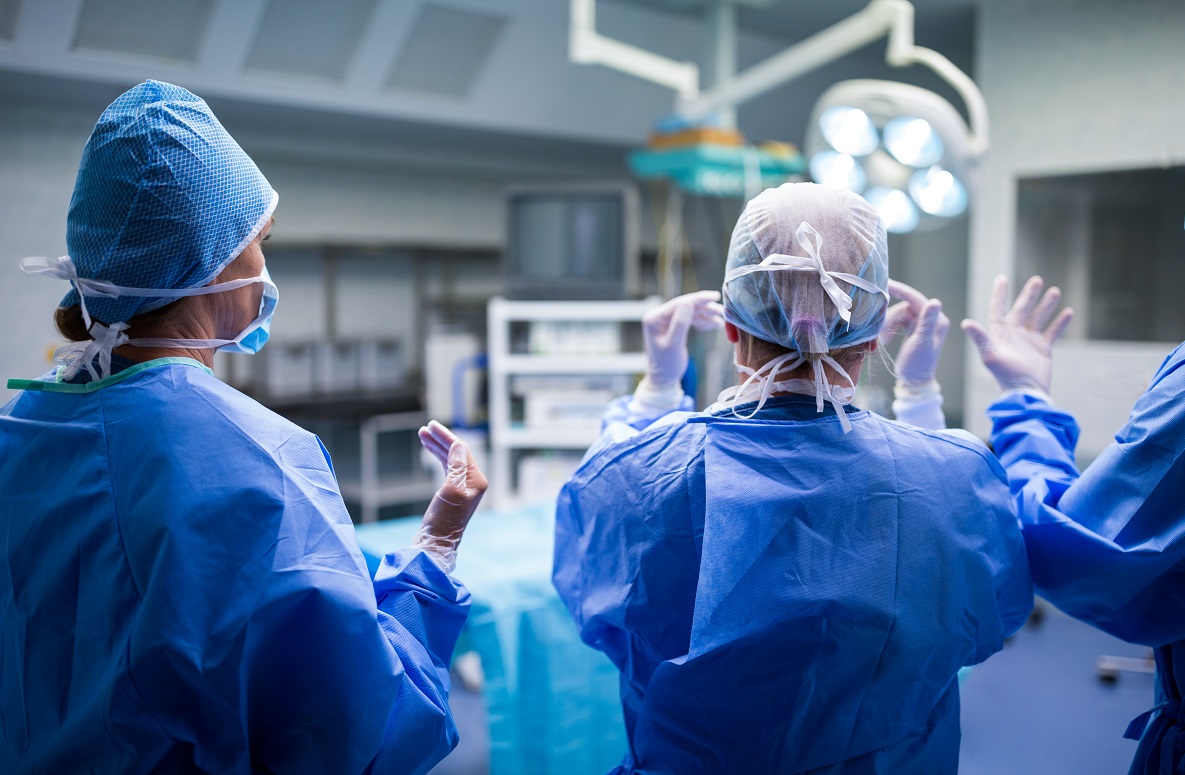LSMU Department of Cardiology – International Centre of Excellence

Lithuanian University of Health Sciences (LSMU) has taken a significant step in international cooperation by entering into an ambitious agreement with Meril Life Sciences, a leader in the medical devices industry headquartered in India. This has strengthened the international image of LSMU and marks the establishment of the Centre of Excellence for Research and Experimental Development (R&D) at the LSMU Department of Cardiology.
“The agreement to establish the Centre of Excellence for Research and Development (R&D) symbolises the acknowledgement of our University’s competence, innovation, and international standing, in particular of the Cardiac Intervention Unit under the Department of Cardiology,” said Dr. Kasparas Briedis, a cardiologist at the Cardiac Intervention Unit and the programme leader.
Dr. K. Briedis, who has gained international experience in his professional journey during his fellowship training at the European Centres of Excellence in Cardiology, underlined the unique significance of this cooperation: “My international professional journey, from being a student to becoming a teacher, has enabled me to impart my knowledge to fellow professionals and to disseminate advanced medical technology globally.”
By visiting cardiology centres worldwide and instructing fellow doctors, Dr. Briedis has recognised the significance of international collaboration and the dissemination of innovation. He noted that this was particularly evident in Asia, South America, Africa, and the Far East – regions with more limited access to modern cardiac interventions. For example, in India, a country with a population of 1.4 billion, transcatheter aortic valve implantation (TAVI) procedures are very uncommon. Just 2,000 procedures are conducted annually in the region, compared to 30,000 in Europe, despite Europe having half the population.
Dr. K. Briedis emphasises that the collaboration with the LSMU Department of Cardiology is a crucial step towards promoting the advancement of these important procedures in developing regions. The programme he leads aims at educating international medical trainees and other healthcare professionals in transcatheter aortic valve interventions, and to contribute to the global improvement of cardiovascular disease treatment.
“The programme also envisions a strong collaboration in the development of international multi-centre research, increasing LSMU’s international outreach in R&D projects,” said Dr. K. Briedis.
Prof. Habil. Dr. Remigijus Žaliūnas, Head of the LSMU Department of Cardiology, emphasised that the ongoing expansion of the infrastructure of the Department of Cardiology and the completion of two new X-ray operating rooms in the Cardiac Intervention Unit are also very important for the advancement of the training process: “The state-of-the-art hybrid operating room currently under construction will offer an enhanced setting for performance of complex structural cardiac interventions on our patients, as well as more opportunities for training and international collaboration.”
According to the Head of the Department, this and other expansions of the Department of Cardiology will undoubtedly strengthen its position as one of the region’s leading international centres.
Dr. K. Briedis also emphasised the objective of the LSMU Department of Cardiology to become a hub not only for treatment but also for the dissemination of knowledge and innovation: “Our goal is not only to treat but also to educate and share innovation, contributing to the advancement of cardiovascular treatment worldwide.”
This collaboration opens new opportunities for LSMU and strengthens the University’s role in the international medical community as it takes steps towards enhancing global health.
